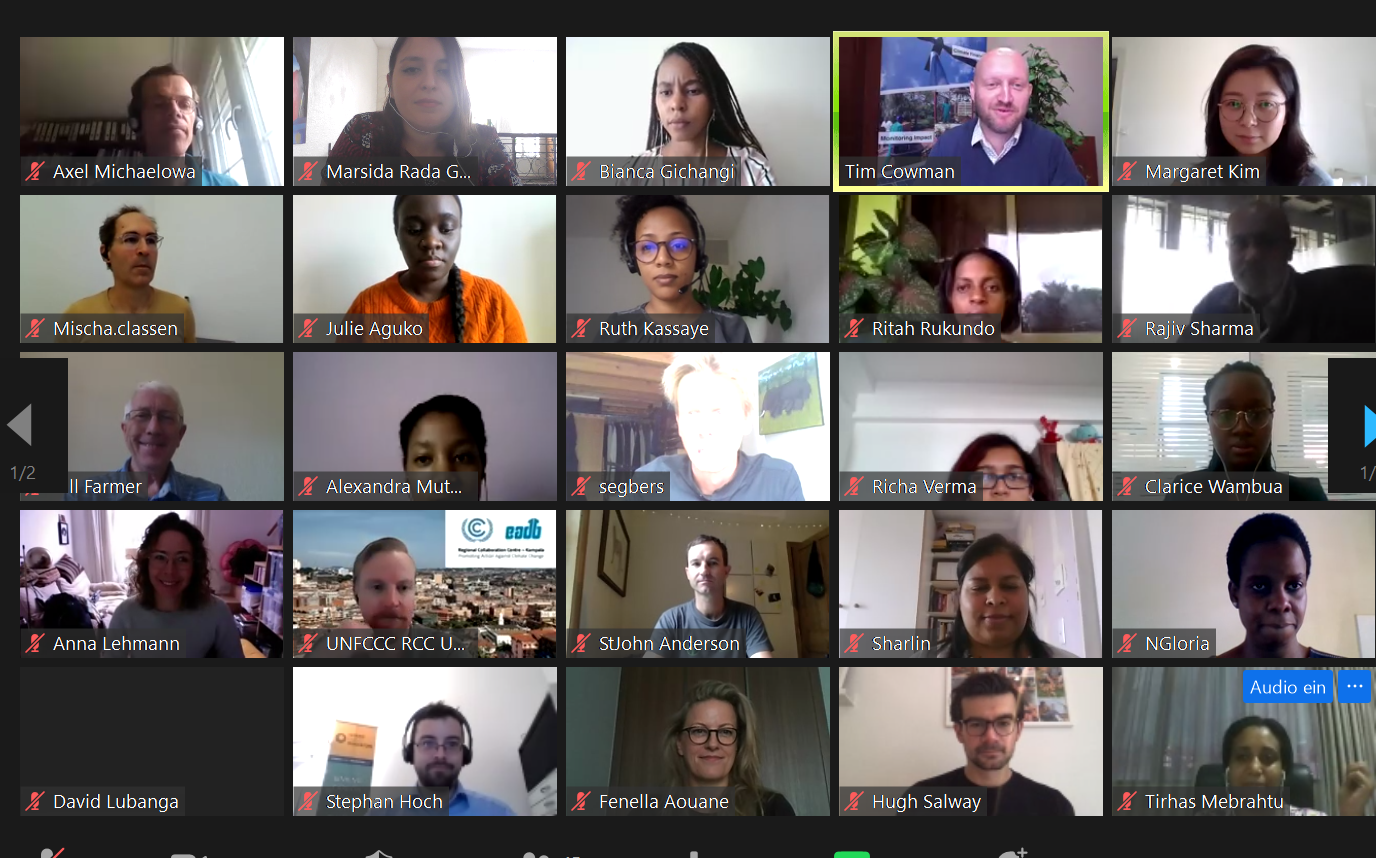In September 2020, the GIZ Global Carbon Markets Programme in Uganda/East Africa on behalf of the German Federal Ministry of Environment, Nature Conservation and Nuclear Safety, in collaboration with the Eastern Africa Alliance on Carbon Markets and Climate Finance, together with the United Nations Framework Convention on Climate Change Regional Collaboration Centre in Kampala and the Climate Finance Innovators Programme hosted a three days regional private sector online dialogue. The three session dialogue each running for between two and two and half hours brought together over 60 carbon asset developers from Eastern Africa including private sector carbon project developers, financiers, carbon standards experts, UNFCCC representatives and development partners among others.
The themes of the dialogues included: i) carbon market engagement and the Clean Development Mechanism (CDM) Transition, ii) Key features of the Paris Agreement and the Nationally Determined Contributions and iii) Piloting of Article 6 of the Paris Agreement. The sessions were intended to build readiness for the potential CDM transition and future implementation of Article 6 amongst existing and aspiring carbon asset developers in the region by providing participants with information on the latest developments within the carbon market and networking through a community of practice for carbon project developers across Eastern Africa, building on similar interactions in recent years.
Key messages from the sessions included :
The lack of clarity at the UNFCCC Intergovernmental level is an extremely serious market concern that, coupled with the postponement of COP26, means there is a real risk of having a CDM regulatory gap after 2020. In response, certain project developers in the region are already stalling on verification investment decisions and considering a shift to the voluntary carbon standards. This has the potential to fundamentally undermine international confidence, in particular of the private sector, in multilaterally governed market mechanisms;
The carbon market is living through a dynamic transition period and it is increasingly challenging to keep track of developments that potentially have an impact on both existing and planned assets;
Emerging significant initiatives developed under the potential future provisions of Article 6 have raised interest in regional carbon asset developers even though there remains a lack of clarity on the exact role they could play. In that regard there is growing pressure on host Governments across the region to ramp up, with urgency, the creation of long term politically mandated governance structures that will enable confident engagement under Article 6.
The private sector has been and will continue to be a key stakeholder in implementing and advancing the carbon markets. It is important that they are continuously informed about and influence the (new) developments within the carbon markets. In the Eastern Africa region, the Eastern Africa Alliance on Carbon Markets and Climate Finance provides a platform were such exchanges can happen with opportunities to further link the carbon market to the various country programs on implementing Nationally Determined Contributions (NDCs).
















